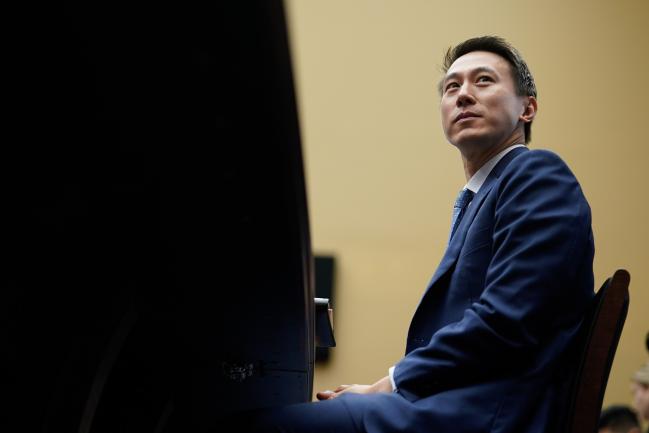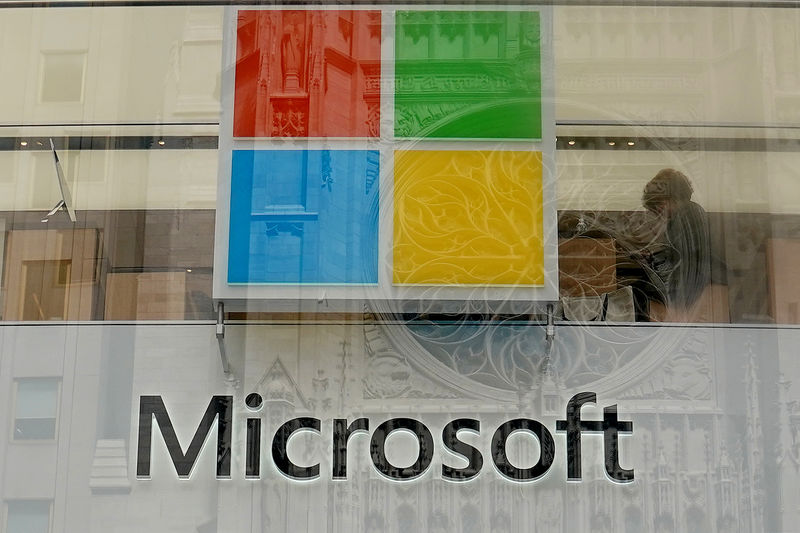(Bloomberg) -- TikTok CEO Shou Chew’s attempts to win over Congressional lawmakers Thursday failed. But the more crucial fight to prevent the short-video app from being punished or banned is likely to play out in the the US legal system.
Lawmakers took turns battering Chew with inquiries for more than four grueling hours, repeatedly and often stridently questioning TikTok’s ownership by Beijing-based ByteDance Ltd. and asking about China’s ability to access the data of millions of Americans. Chew did little to alleviate those concerns, experts who watched the proceedings said. At one point, asked if ByteDance’s Chinese engineers have access to the data of American users, he said: “It’s a complex subject.”
That places TikTok’s parent in a tougher spot. TikTok executives had internally discussed splitting from ByteDance, but China this week said it would firmly oppose a forced sale. That echoed opposition years ago toward letting even a dash of ByteDance’s secret sauce — its content-recommendation software — end up in foreign hands.
Yet TikTok need not have bothered. It’s unlikely there would be a long list of buyers wealthy or willing enough to take on a US political hot potato worth $50 billion, at a time of escalating US-Chinese tensions and growing scrutiny of large technology platforms, said Caitlin Chin, fellow at the Washington-based Center for Strategic and International Studies.
That means the government would have to silence TikTok in the US if it wants to make good on its threats — and judges have in the past shown extreme reluctance to squash even a Chinese-owned social media platform, fearing the precedent it would have on freedom of speech. In 2020, TikTok successfully challenged the Trump administration’s attempt to block the video phenom, ultimately dissipating that first US attempt to exert influence over ByteDance’s greatest creation.
“I do think that Tiktok has a very strong case just because the First Amendment and the legal norms under the First Amendment are so strong that the government has to show that any limitation on speech is narrowly tailored and that it advances a compelling government interest,” Chin said. As for the hearing, “I was not expecting it to be that brutal to watch. Right from the start, we knew that lawmakers were coming in with their minds already made up.”
It’s not just geopolitics riding on the outcome. ByteDance is backed by some of the world’s biggest financiers, from SoftBank Group Corp. to Sequoia Capital and Temasek Holdings Pte. TikTok alone generated an estimated $10 billion of revenue in 2022.
The American public remains divided on whether TikTok is just a place to watch goofy teens dance and lip-synch to pop music, or a portal through which Beijing might touch the lives of 150 million-plus users. The latter concern is underscored by the fact that Chinese laws give the government power to request data from internet companies on demand, if deemed in the interests of national security.
That’s why TikTok, which blazed a trail for later Chinese-owned upstarts like fast-fashion retailer Shein, has become a touchstone for escalating US-Chinese tensions. That role dates back to the Trump administration, which unsuccessfully tried to suppress not just TikTok but also Tencent Holdings (OTC:TCEHY) Ltd.’s WeChat on similar grounds.
TikTok’s proposed magic-bullet fix is Project Texas — the company’s plan to store US data in the US by a US team, as Chew has put it. But that argument appeared to fall on deaf ears in Washington on Thursday. Even the famously secretive Committee on Foreign Investment in the US — which hasn’t even confirmed that it is reviewing TikTok — released a statement with a general warning about data security in the middle of Chew’s testimony. ByteDance representatives didn’t respond to requests for comment.
“The TikTok question is not only about data security and privacy, which is a general issue all social media platforms are facing, but also about algorithm influencing,”said Jiang Zhaokang, managing director at DC-based law firm GSC Potomac, which focuses on trade and supply-chain legal services. “Project Texas does not really address that concern.”
Even were a sale of TikTok palatable to Beijing, it would be hard to secure a buyer acceptable not just to Party cadres but also to increasingly hawkish US lawmakers. When Trump tried to arrange a takeover, in 2020, Microsoft Corp (NASDAQ:MSFT). and Oracle Corp (NYSE:ORCL). — even Walmart (NYSE:WMT) Inc. — were among the potential suitors. But many of the largest US tech companies are now facing antitrust scrutiny from the Biden administration over business practices and other acquisitions, and TikTok has only grown in value and market share since then.
Washington and Beijing also have to consider a divided public. Many Chinese took to social media after Chew’s testimony Friday, alternately excoriating ByteDance for pandering to American whims and praising Chew for not cracking under pressure.
For his part, Chew took to TikTok ahead of the hearing on Tuesday to rally the platform’s faithful to its defense. He asked users to leave comments on his post listing all the reasons they love the app, and what they would tell US elected representatives. The post has received tens of thousands of comments, the vast majority supporting the service.
“Any sale is not going to be clean and it’s not going to be easy if it happens at all, but the question is what is the alternative, especially since a ban will definitely be challenged in court on First Amendment grounds,” Chin said. “I don’t really see a clean, pretty solution to this.”
TikTok may ultimately have to take its case all the way to the US Supreme Court, essentially getting a judge to say that a forced sale is either unconstitutional or deprives people of their livelihoods, said Alex Capri, a Singapore-based research fellow at the Hinrich Foundation. The judges may then choose to zero in on the ever-growing reports of Chinese cyber-intrusions into US government agencies, he said, calling Chew’s appearance a “train wreck.”
The hearing could speed momentum for bipartisan legislation to give the Biden administration more legal authority to review foreign-owned technology and take steps to mitigate any national security risk — including a US ban. The White House has said it needs these legal tools to help any action against TikTok stand up in court.
Read More: Bipartisan Support Builds for ‘Rules-Based Approach’ to TikTok
US Treasury Secretary Janet Yellen on Thursday joined the fray, saying she’s seeing a growing number of situations that have raised concerns similar to those prompted by the app.
“This could spread not just to TikTok but to other Chinese platform companies,” Capri said.
Indeed, the eventual outcome may have broader implications for other Chinese apps that cater to the American populace. Some of the most successful include Shein and PDD Holdings Inc.’s Temu, which launched mere months ago.
“If what we’re worried about is Chinese-backed companies being on tens of millions of American phones, including members of the military, and privacy concerns, data concerns, misinformation concerns — that doesn’t just apply to TikTok,” Commerce Secretary Gina Raimondo told Bloomberg News in an interview this month.
©2023 Bloomberg L.P.

